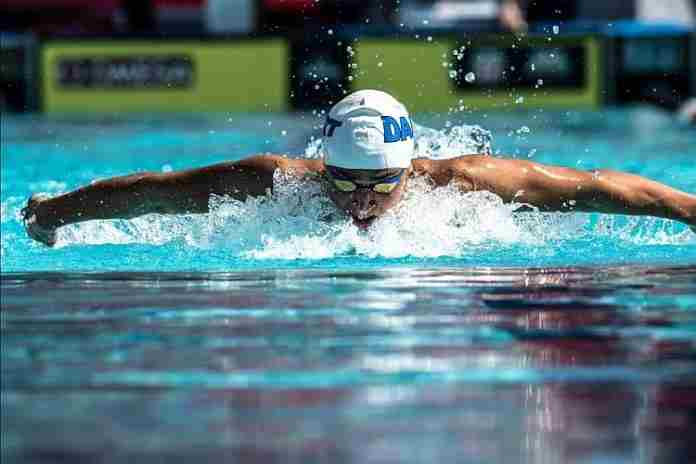= TSX DAILY ~ 1 August 2019 =
| 1. | Swiss Federal Tribunal: Semenya’s appeal unlikely to succeed
The battle royal between the International Association of Athletics Federations (IAAF) and the two-time Olympic 800 m champion, Caster Semenya of South Africa, took a significant turn this week, as the Swiss Federal Tribunal reinstated the IAAF’s rules on female eligibility in certain events.
The Court’s explanation, released Wednesday, was even more devastating, concluding “in a first summary examination, that Caster Semenya’s appeal does not appear with high probability to be well founded.”
Semenya and several other female athletes with what the IAAF terms “differences in sex development” reportedly have testosterone levels that are close or the same as those of men. Normal female testosterone levels are from 0.06 to 1.68 nanomoles/liter, while normal male levels are from 7.7 to 29.4 nmol/L. The IAAF’s new regulations, introduced in 2018, regulate the level of such testosterone for athletes entering women’s events from 400 m to the mile, to 5.0 nmol/L, or almost three times the level ordinarily found in women. Women with too-high testosterone levels can lower them with oral contraceptives.
Semenya and Athletics South Africa lodged an appeal in the Court of Arbitration for Sport, and the CAS found that the regulations, while discriminatory, were necessary and carefully narrowed to ensure fair competition in the affected events. The appeal was then made to the Swiss Court, which issued an order suspending the rules on 31 May and then reinstated them on Tuesday.
The impact? Semenya and similarly-situated 800 stars like Rio silver and bronze medalists Francine Niyonsaba (BDI) and Margaret Wambui (KEN) will not be allowed to run in the 2019 IAAF World Championships in Doha in late September. American Ajee Wilson becomes the favorite in the event that was conceded to Semenya.
● REAX ● As the Swiss Court noted, this is an interim order and not a final decision. But lurking behind Semenya’s case is the question of transgender athletes who have retained their male testosterone levels entering women’s events. The International Olympic Committee, which is revising its own regulations on this issue, is watching this case closely.
Important: Semenya has conducted herself during the entire process with dignity, patience and class. She may lose her appeal, but she’s a winner.
| 2. | Sens. Moran and Blumental introduce costly bill to revamp USOPC oversight
In the aftermath of the Larry Nassar sex-abuse scandal, multiple Congressional hearings were held, including four by a Senate subcommittee chaired by Sen. Jerry Moran (R-Kansas) and Sen. Richard Blumenthal (D-Connecticut). The outcome was a 235-page report and a 42-page bill called the “Empowering Olympic and Amateur Athletes Act of 2019.”
If passed, the bill would allow the Congress to remove the entire Board of Directors of the U.S. Olympic and Paralympic Committee or de-certify a National Governing Body – USA Gymnastics is first in line for the Senators – by a Joint Resolution.
It also requires law enforcement to be notified of any allegation of child abuse of which the NGBs or USOPC are aware, increased the athlete representation on Boards of Directors and committees from 20% to 33% and requires the expansion of the “Office of the Ombudsman” inside the USOPC.
The bill further requires that the USOPC (with the NGBs) fund the U.S. Center for SafeSport at the rate of $20 million per year, a lot more than the USOPC’s current rate of $3.1 million.
● REAX ● In its initial form, this bill has little chance of going anywhere. The House has its own subcommittee looking at this issue, chaired by Rep. Diana DeGette (D-Colorado), which is likely to formulate its own bill. But it’s a start. Note this: there are significant requests from the USOPC’s Athletes Advisory Council which were not included in the Senate bill, such as an independent Inspector General or an “Athlete Advocate” to provide free legal advice to athletes on sport and safety matters. The activists will press for these with the House.
| 3. | FOOTBALL: It’s not about equal pay now, it’s about being paid, period.
The highly-publicized crusade of the U.S. Women’s National Team – winners of the FIFA Women’s World Cup on 7 July – for “equal pay” was thrown in chaos on Monday when U.S. Soccer Federation chief Carlos Cordeiro posted an open letter and fact sheet which stated that, after a deep dive into the USSF’s accounting records for the past 10 years, the Women’s National Team players were actually paid more than the Men’s National Team by $34.1 million to $26.4 million, not including benefits.
Moreover, the note clarified that the current USWNT labor agreement, implemented in 2017, pays the players a base salary of $100,000 per year, and an additional $67,500–72,500 if they play for a club in the National Women’s Soccer League. The men have a different contract which pays only game bonuses for those matches in which they play for the U.S.
The post sent the women’s representatives into a tizzy, with a spokeswoman calling the figures “a ruse” and calling the post “a sad attempt by USSF to quell the overwhelming tide of support the USWNT has received from everyone from fans to sponsors to the United States Congress.”
The Men’s National Team protested the posting as well, but also showed its agenda in its statement that “our CBA expired at the end of 2018 and we are currently waiting on a response from US Soccer to our proposal that would pay the men a fair share of all of the revenue they generate and would provide equal pay to the USMNT and USWNT players.”
Lost among the tumult was the announcement that Jill Ellis will step down as the women’s coach after the “Victory Tour” games are finished in October. She led the women to two World Cup titles and has a glossy 102-7-18 record thus far.
● REAX ● Cordeiro got the upper hand here and the statement from the USWNT spokesperson was weak, echoing the famed legal maxim from the 1930s: “If the facts are against you, hammer the law. If the law is against you, hammer the facts. If the fact and the law are against you, hammer opposing counsel.”
The women’s team has agreed to mediation and a settlement is the most likely scenario, especially if the USSF can show that its figures will be held accurate at trial. As to the men’s collective bargaining agreement that expired at the end of 2018, given its failure – on the field – to qualify for the FIFA World Cup, and since it won’t play a truly meaningful game for another two years until qualifying for the 2022 World Cup comes around, why rush?
| 4. | FOOTBALL: FIFA agrees to expand the Women’s World Cup to 32 teams
The FIFA Council unanimously agreed to have 32 teams participate in the 2023 Women’s World Cup, up from the 24 that were in France in June and July. This is possible because the host for 2023 has not been selected yet.
There are nine expected bidders for the 2023 event and FIFA will send information to them so that completed bids can be submitted on time in October. The format of the event will include eight groups of four teams, along the same lines as the current FIFA World Cup … which is expanding to 48 teams in 2026.
| 5. | PAN AMERICAN GAMES: U.S. medal-collection campaign has 76 in five days in Lima
To the surprise of absolutely no one, the United States is already in high gear at the Pan American Games in Lima, Peru, winning 76 medals through the first five days of competition.
The American women’s gymnastics team has been impressive, winning the team title by almost 11 points over Canada with a team of Kara Eaker, Aleah Finnegan, Morgan Hurd, Riley McCusker and Leanne Wong. Eaker won the individual gold on Beam and silver on Floor; McCusker won on Uneven Bars, took silver in the All-Around and bronze on Beam, and Wong won silver on the Uneven Bars.
The men won three medals, with Robert Neff taking silvers on Floor and Pommel Horse and Cameron Bock on Parallel Bars.

























